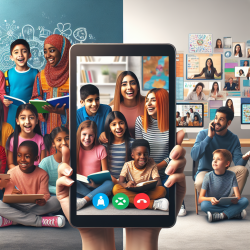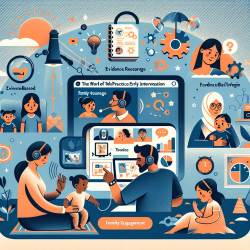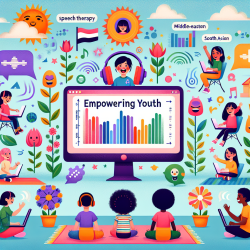Empowering Change: Building Skills for a Brighter Future
The COVID-19 pandemic has posed significant challenges, especially for individuals with intellectual and developmental disabilities (IDD). This vulnerable group has faced increased health risks, necessitating innovative solutions to support their care. The Extension for Community Healthcare Outcomes (ECHO) model has emerged as a transformative approach, enabling virtual education programs that empower providers to deliver better care during these unprecedented times.
The ECHO Model: A Virtual Education Revolution
The ECHO model leverages videoconferencing technology to create virtual communities of practice. It connects healthcare providers with specialist teams, fostering collaboration, learning, and the sharing of best practices. This model is particularly effective in addressing the complexities of care and disparities in access, making it an ideal solution during the pandemic.
Rapid Development and Evaluation
In response to the pandemic, a targeted virtual education program, ECHO Ontario Adult Intellectual and Developmental Disabilities: Mental Health in the Time of COVID-19 (ECHO AIDD-COVID), was developed. Using a rapid design thinking approach, this program was tailored to address the unique challenges faced by providers caring for individuals with IDD. The program included mindfulness practices, wellness checks, and COVID-19-related updates, fostering a holistic approach to care.
Key Outcomes and Impact
- High levels of engagement and satisfaction among participants, with an average satisfaction score of 4.31 out of 5.
- Significant improvement in self-efficacy, with a 19.8% increase in confidence among providers.
- Enhanced knowledge and competency, leading to changes in practice and improved client care.
- Creation of a supportive community of practice, reducing feelings of isolation among providers.
Future Directions
The success of the ECHO AIDD-COVID program highlights the potential for virtual education to transform care delivery. Future iterations should focus on evaluating long-term outcomes, such as staff burnout, and incorporating the perspectives of individuals with IDD in teaching. By scaling up these initiatives, we can build a wider community of practice and enhance knowledge translation at a systems level.
To read the original research paper, please follow this link: Virtual Education Program to Support Providers Caring for People With Intellectual and Developmental Disabilities During the COVID-19 Pandemic: Rapid Development and Evaluation Study.










